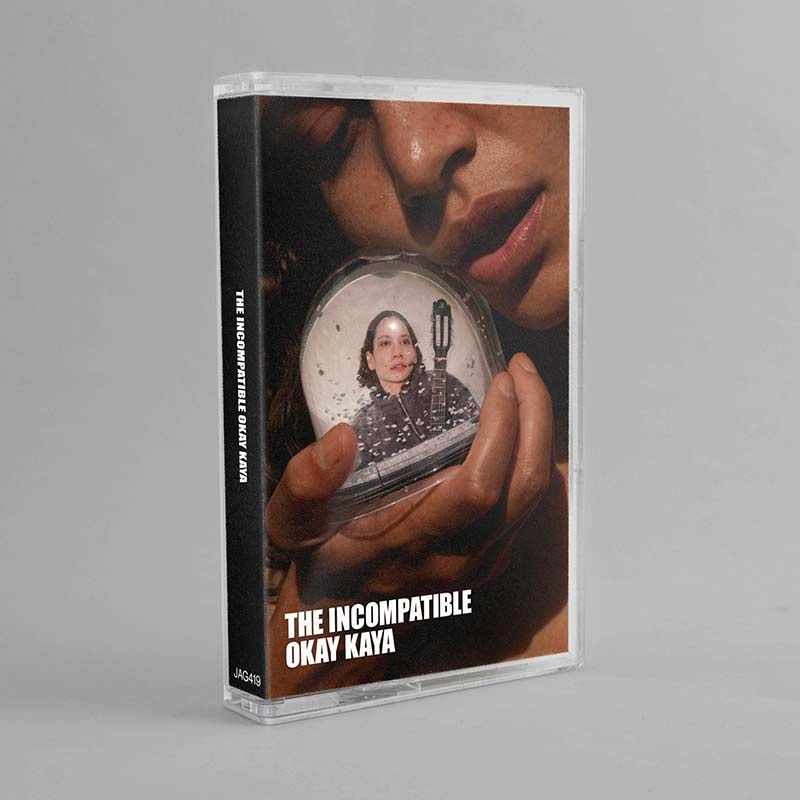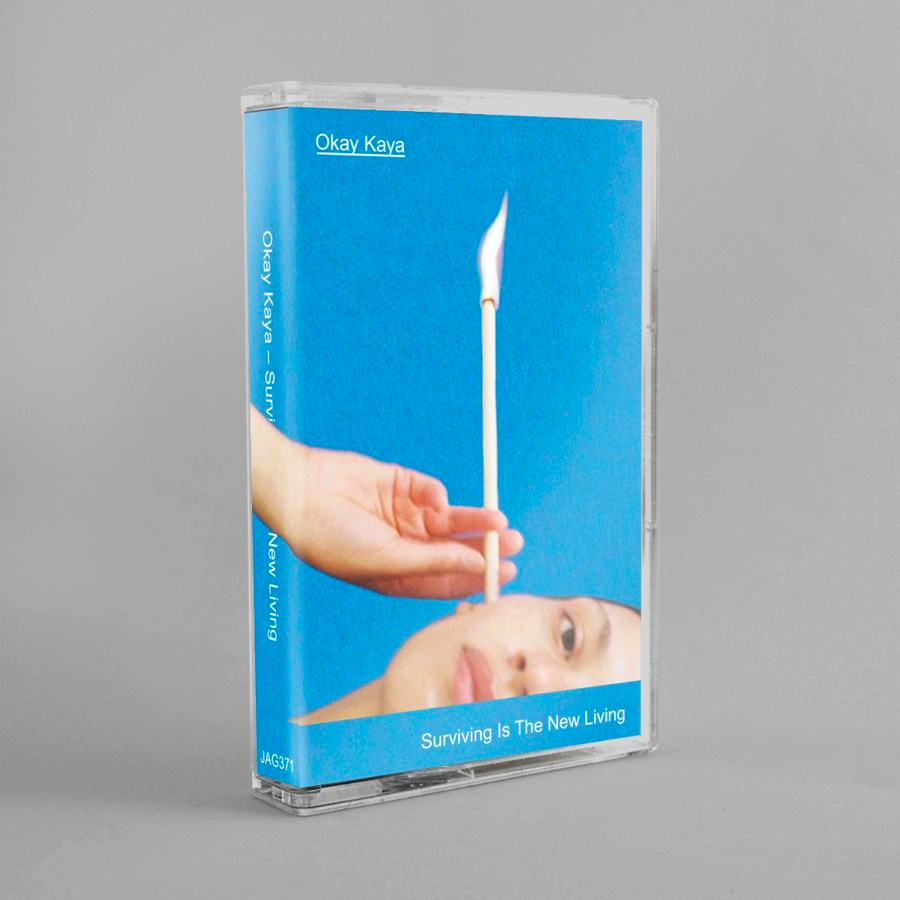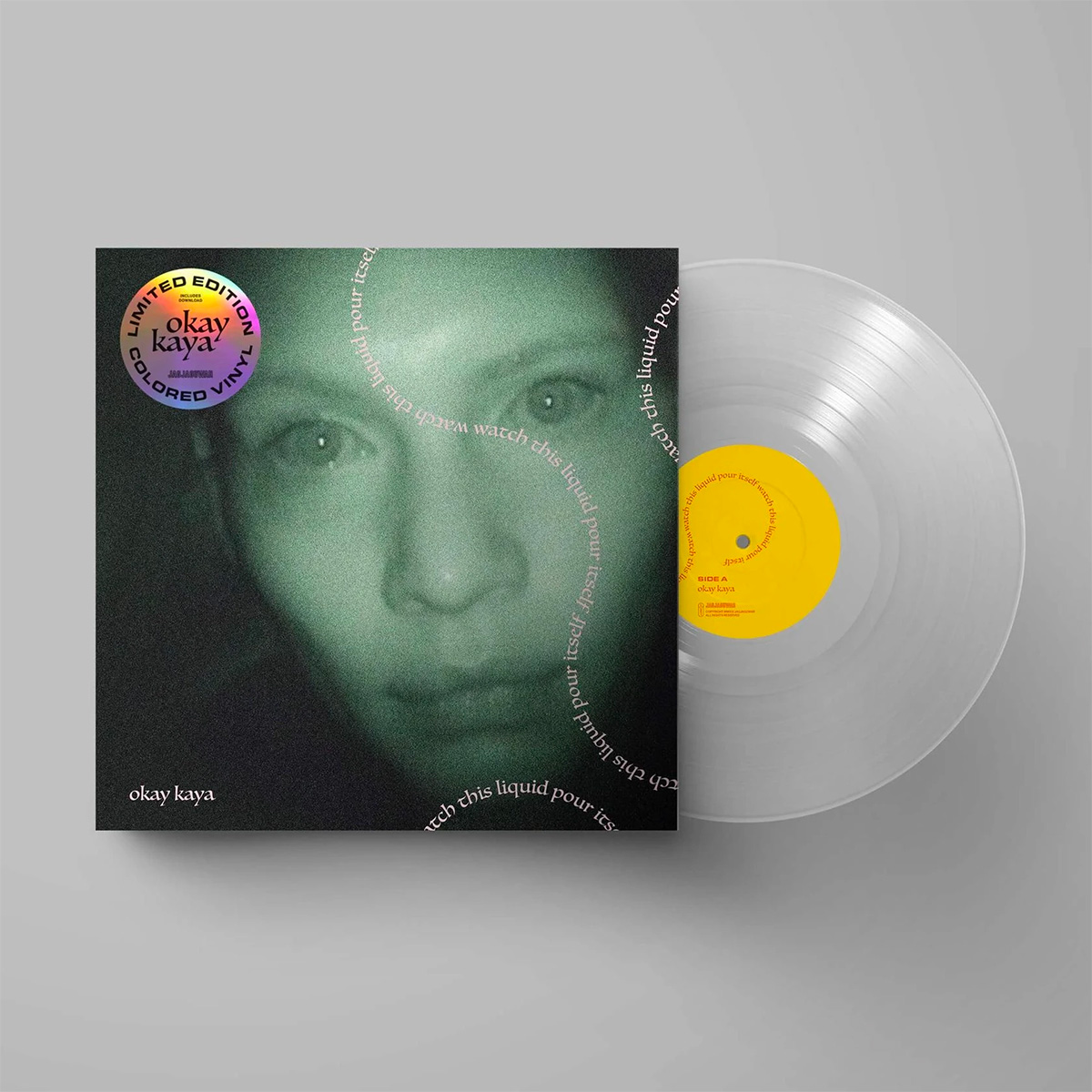Okay Kaya
Store
“Even my subconscious is self-conscious,” Okay Kaya sings on ‘Inside Of A Plum’, giving us a sense of the mental state she entered while making SAP, which she wrote, performed, engineered, and produced alone, sometimes spending weeks at a time without social interaction. On this album, Okay Kaya focuses her trademark combination of abstraction and wit on what happens to her mind unaccompanied, her tendency to feel less like a human and more like the sticky secretion of a tree. SAP is a concept album about consciousness, confronting essential questions of the mind-body connection like “Have you tried jazzercising your nerves away?”
In January of 2020, Kaya released her Spellemann-Award-winning album Watch This Liquid Pour Itself and left New York, her home of ten years, to spend time in Europe creating and showing various interdisciplinary art exhibitions. During the lockdown of 2020, she recorded Surviving Is The New Living in Copenhagen and shortly after moved to Berlin. A year later, when spring sprung, Kaya wandered Treptower Park and found herself touching trees. This planted a little seed from which SAP would grow. ‘Spinal Tap’ emerged – a sexy dance beat with unpredictable interlocking synths and close-to-the-mike R&B whispering: “While you slept, your brain got rinsed. Cerebrospinal fluids took out your trash.” She’d found her first single and the direction for the album.
That summer, Kaya exhibited her first solo gallery show, Sandplay, at Copenhagen’s Etage Projects, an audiovisual and sculpture show based on a form of Jungian therapy in which children play with trays of sand. “I worked on the show at my childhood home in Norway with my mother, Else. Together we used little clay figurines I made as prototypes (the same ones featured in the music video for ‘Mother Nature’s Bitch’) and built giant stuffed sculptures,” Kaya says. “I spent my spare time recording music in the borrowed studios of some generous friends.” She continued recording SAP in Berlin before returning to her hometown of Oslo to build the installation Wet Suit for MUNCH Museum. “We sent a vocal and a harp through an underwater speaker, then through a hydrophone, and amplified it back to the audience: music underwater that you could hear on land. Like being touched twice.” In this prolific year, she recorded two albums: The Incompatible Okay Kaya (2021) and, downstream, SAP.
In this period, Kaya tried ketamine therapy. “The doctor said this treatment could interrupt behavioral patterns by growing new literal physical branches in your brain, providing cognitive flexibility,” Kaya explains. “My doctor described the brain as a snow globe and the treatment as a fresh layer of snow enabling new slopes. Mood-riding.” This eventually grew into the song ‘The Inside of A Plum’.
The music video for ‘Spinal Tap’, made with artist Austin Lee, manifests a world of sticky-membraned creatures reminiscent of the characters in old Gumby cartoons, but wet and glistening. “My writing process often begins with images in lieu of words. What if you’re tree-juice? How far along the stem do you have to ride before you get away from your parents and realize you’re the tear of this person and the blood of this person?” Kaya says. “I see a vision in my mind’s eye and take it from there. Austin has such a profound visual sensibility. Together, we translated many of my drawings. They became a wonderful invitation into his world. We developed this mascot, SAP, an alternate version of self.” Lee is collaborating with Kaya on many of the visuals related to the album.
“When I finally returned to New York after two years, I couldn’t wait to collaborate again. I wanted friends to bless the record.” Kaya worked out of Gaia Studios in Greenpoint, Brooklyn and invited friends over to sing or play an instrument. Most songs on the album unfold with guest performances from artists as varied as Deem Spencer, Taja Cheek of L’Rain, and Adam Green of The Moldy Peaches.
While ‘Spinal Tap’ and ‘The Inside of A Plum’ describe the dirty dream work of CSF or the brain-branching of ketamine therapy, ‘Jazzercise’ is about abandoning the ego and existing exclusively as a body, a surviving organism. Kaya layers an 80s hip-hop beat with keyboard notes like raindrops and talk-sings, “May as well keep a flesh-vase healthy.” Kaya explains, “Sometimes I need very scientific black and white explanations of bodily functions that I need to remember to do, like sleep. It’s a cantilever for my sappiness. SAP is an image abstract enough for me to fit my funny little life into. One might even say it ‘resonates.'”
As she experimented with ego death, Kaya found herself writing in the voices of fictional characters she’d encountered in other people’s stories, specifically characters that weren’t given voice in the original telling. In ‘Jolene From Her Own Perspective,’ she imagines Dolly Parton’s nemesis responding to her song: “I can’t believe we’re arguing about some man. That’s so silly. In fact, I’d rather talk about you and me.” In ‘Origin Story,’ featuring Aerial East, Kaya writes as a mythical goddess frustrated with her creation myth. “I am cum. I am scum. Wish I came from no one.” In ‘I’ve Spent Forever Planning A Crisis,’ Kaya responds to Cassavetes’ film A Woman Under The Influence. “That movie was rough,” Kaya says. “I could only watch until the part when the mother tries to get her children to perform Swan Lake.” So, Kaya wrote from the perspective of the story’s children, “Look, Ma! I am an accommodating swan!”.
Much of SAP portrays internal experiences, i.e. Kaya investigating her mind in solitude, but occasionally a song leads her outside herself – romantic connections act as funhouse mirrors, showing her who she is from another angle. ‘Pathologically Yours’ has perhaps the wildest melody on the album, with Kaya’s cracking falsetto loud in the mix, barely accompanied. “When you let me go, you slap-struck my ego. I’m pathologically yours.” On ‘Rorschach,’ experiencing another person’s body is a way to understand your own mind. “Her tongue is a Rorschach Test. Twisted, I interpret it.”
Okay Kaya’s cascading melodies don’t tell us where they’re going or how they’ll get there, but always land softly. Her lyrics also embody this beauty through chaos, offering wisdom that leads us deeper into uncertainty. It’s in ‘Pearl Gurl’ that Kaya finally sets us down for a moment on a conceptual cushion. With tender, delicate guitars, she harmonizes with her multi-tracked second self and sings a line you can imagine finding graffiti’d in the ruins after the end of the world or printed on a t-shirt you only wear when you’re alone: “If love is not the answer, it’s one hell of a question.”




